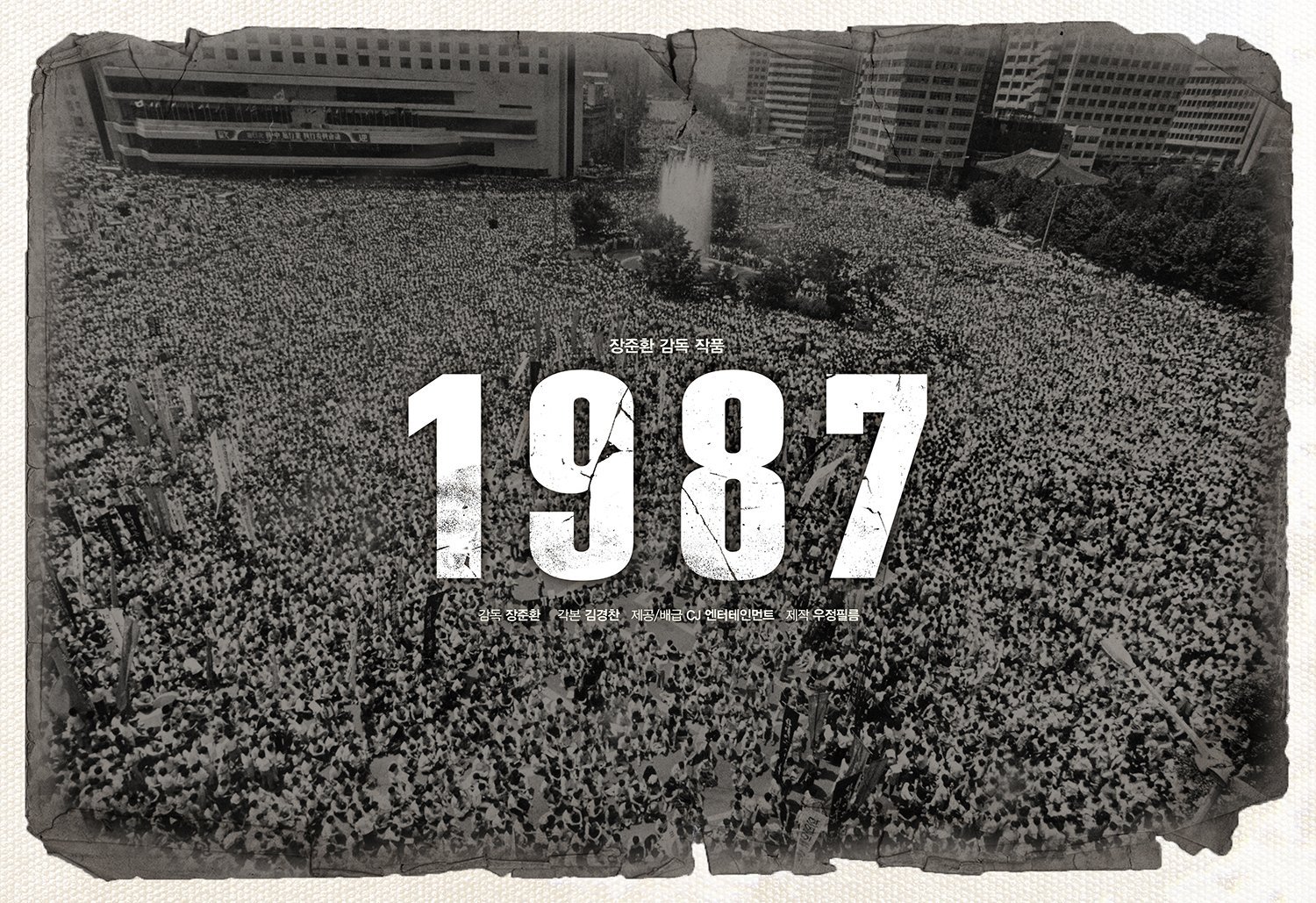ELIZABETH SOELISTIO WRITES – “A Death that Cannot be Buried” is written in one of the promotional posters for this South Korean film. But, that sentence is not only a promotion, but a statement of truth when it comes to “1987: When the Day Comes.”
Based on the real-life events surrounding the June Democratic Uprising, “1987: When the Day Comes” invites audiences to the experience some of the struggle and sacrifice that South Koreans made to gain democracy. With the aftermath of the 1980 Gwangju Massacre, many student activists in universities resisted under the military dictatorship of Chun Doo-hwan.
The movie centers around the death of Park Jong-chul, a 22-year-old student at Seoul National University who was tortured to death during an interrogation after being arrested by the Anti-Communist Investigations Bureau (ACIB). As Park refused to sell out his fellow activists, the authorities used water torture to get the information, which eventually led to his death on January 14.
However, the autopsy revealed a story of torture. Prosecutor Choi Hwan ordered the autopsy due to the unusual death stated in the police report. This information leaked to the media which sparked a mass protest condemning the police use of torture in political detainees, calling for democratic elections of Roh Tae-woo.
The protests only intensified when Catholic Priests Association for Justice (CPAJ) revealed the truth and perpetrators to the public on May 18. Despite the two policemen charged with murder, it did not stop CPAJ’s plan of demonstration on June 10 in honor of Park.
Students at Yonsei University were first to the protest arena and on June 9 demonstrated against the regime’s brutality, demanding democracy in South Korea. This protest was brutally shut down by the police, injuring Lee Han-yeol, a 21-year-old Yonsei student, with tear gas cannister that penetrated his skull.
Doomed to repeat the tragedy of 1980 Gwangju Massacre, Chun Doo-hwan reversed his decision to mobilize against the protests. He promised to restore democracy and hold a direct presidential election with freedom of press rights.
Though the movie ended with everyone singing during the June Democratic Uprising protests, the intense and emotional feeling lingered among the audience. Nostalgic feelings ignite as South Korea experiences the impeachment of President Park Geun-hye due to a massive corruption scandal in early 2017.
President Moon Jae-in and the late President Roh Moo-hyun helped lead the June 1987 uprising in the southern city of Busan during their time as human rights lawyers.
“Never again will democracy as a system falter or backtrack in this country. Under the Moon Jae-in administration, our democracy will mature, the scope of human rights will be expanded. All power comes from the people,” President Moon promised during the June Democratic Uprising commemoration ceremony.
Since its release in late December, “1987: When the Day Comes” has topped a recently released Korean fantasy drama, “Along With the Gods: The Two Worlds,” at the box office. “1987: When the Day Comes” is playing in all CGV Cinemas, Los Angeles and Buena Park 8 and is available in both Korean and English.

